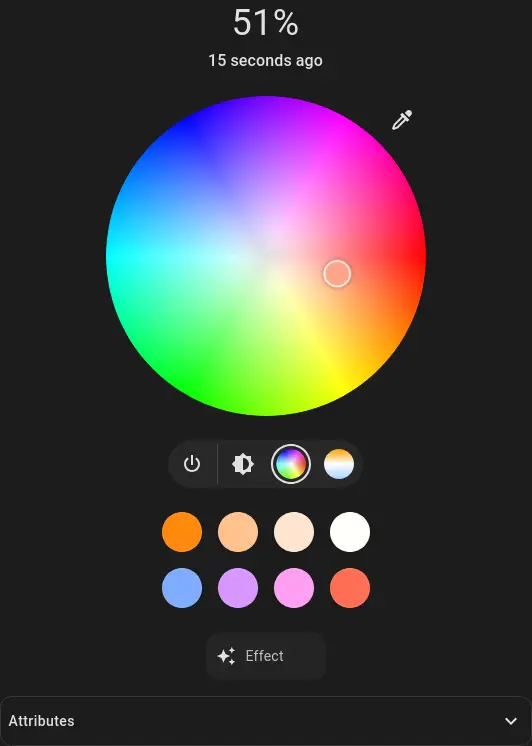Hello,
I don’t have any ‘smart’ items in my house (or home assistant currently) but I want to set this up but I have questions about compatibility with hardware before I purchase. They have a integration page does that mean all of those hardware devices work? Or do some work better than others? According to a person on Reddit they recommend https://www.zigbee2mqtt.io/supported-devices/ I’m just curious if anything has changed in the past year. Or if anyone here has a list of recommendations. I plan to start with some lights and a thermostat.
Cheers and thanks.


Hue bulbs now work on standard zigbee.
I’d have to double check that the newest ones still do, but unless Signify are being complete bell-ends, it should just work.
I switched mine over after I got fed up with that bloody hub requiring an app to do any serious config, and randomly disconnecting.
The response time seems better when using HASS too. Bulbs that are not yet paired can be easily added to the network, ones that have been paired need to be deprogrammed first.
This is how the Hue RGB bulb I have can be controlled in HA:

It’s fair to say that there really isn’t one standard yet for home automation.
You’re likely to end up with multiple radios just due to availability of products.
I started with a zigbee dongle, then got a z-wave one when I started finding products I wanted that only came in z-wave.
Then I got an SDR dongle to use 433MHz (lots of cheap gear uses 433)
I personally haven’t touched thread/matter yet.
The really nice thing about HASS is that if you can get it to talk to HASS…It can be integrated with anything else you integrate with HASS.
For example, I have some cheap zigbee push buttons.
One click toggles the hue bulbs for that room on/off. Two clicks toggles a daylight mode.
Press+Hold toggles a dim yellow mode for night.
Or for another, I have central water heating.
The toggle for heating on/off is a simple smart switch.
This is linked to a virtual thermostat in HASS, which in turn is fed by a simple thermometer that also feeds into HASS.
You can often make really nice integrations by keeping the hardware as simple as possible, then stitching it together with HASS.
Rather than buying one thing for all, and hoping it integrates well.